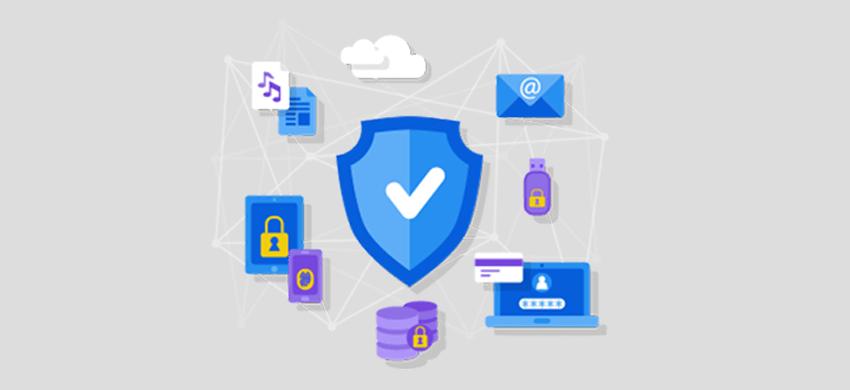In today’s hyper-connected environment, organizations rely heavily on digital networks to run critical operations. However, these networks are also prime targets for cybercriminals looking to exploit vulnerabilities and gain unauthorized access. That’s why implementing robust network security solutions is more important than ever.
From small businesses to large enterprises, building a secure infrastructure involves advanced threat detection, firewall configuration, and continuous monitoring. Without proper cybersecurity services in place, your IT systems remain exposed to data loss, financial risk, and reputational damage.
What Is Network Security?
Network security refers to the combination of hardware, software, and protocols designed to protect the integrity, confidentiality, and availability of your IT systems. It focuses on preventing unauthorized access, misuse, malfunction, or modification of your network.
This includes protection against malware, ransomware, phishing attempts, and zero-day attacks. Comprehensive network security solutions safeguard both internal and external traffic to ensure smooth and secure operations.
Why Network Security Solutions Matter
- Increase in Cyber Threats: With ransomware and phishing attacks on the rise, unprotected networks are easy entry points for attackers.
- Compliance Requirements: Regulatory frameworks like GDPR, HIPAA, and NIST require a secure infrastructure to avoid fines and sanctions.
- Business Continuity: A compromised network can halt operations. Security ensures minimal downtime and business continuity.
- Remote Work Risks: As more employees work remotely, endpoint access and VPN connections become new vulnerabilities.
Core Components of Network Security Solutions
1. Firewall Configuration
A firewall acts as the first line of defense. Properly configured firewalls monitor and control incoming and outgoing traffic based on predefined security rules.
2. Intrusion Detection and Prevention Systems (IDPS)
IDPS tools monitor network traffic for suspicious activity and either alert administrators or take automatic action to block threats.
3. Virtual Private Networks (VPNs)
VPNs encrypt internet connections, especially for remote users, ensuring secure data transmission over public networks.
4. Secure Access Control
Use multi-factor authentication (MFA) and role-based access to limit who can access specific systems or data.
5. Email and Web Security
Email gateways and URL filtering help detect phishing emails and prevent users from accessing malicious websites.
6. Threat Detection and Response
Advanced security solutions use artificial intelligence and behavioral analytics to detect unusual activity and mitigate threats before damage occurs.
7. Network Segmentation
Dividing your network into smaller zones helps isolate threats and limit access, reducing the potential impact of a breach.
Benefits of Network Security Solutions
- 24/7 Monitoring: Continuous scanning ensures immediate response to potential threats.
- Data Protection: Encryption and secure protocols prevent unauthorized access and data breaches.
- Improved Productivity: Minimizing system downtime and malware infections leads to better operational efficiency.
- Customer Trust: Demonstrating strong cybersecurity practices builds trust with clients and stakeholders.
- Cost Savings: Investing in prevention is more cost-effective than dealing with the aftermath of a cyberattack.
How Network Security Impacts Different Industries
- Finance: Protecting transaction data, customer records, and compliance with regulatory frameworks.
- Healthcare: Ensuring HIPAA-compliant storage and transmission of patient data.
- Education: Securing online learning platforms and student information systems.
- Retail: Safeguarding POS systems and customer payment data from skimming and hacking.
How We Can Help You
At Sentinel Cyber Defender, we specialize in designing and implementing tailored network security solutions for businesses of all sizes. Our services include:
- Comprehensive firewall configuration and policy review
- Deployment of threat detection systems and real-time monitoring
- Secure remote access and VPN setup
- Email and web gateway protection
- 24/7 support and rapid incident response
- Compliance audits for ISO, GDPR, and NIST frameworks
Our certified experts assess your current infrastructure, identify vulnerabilities, and deploy tools that strengthen your network’s defenses.
Ready to Secure Your Network?
Protect your digital operations with advanced network security solutions from Sentinel Cyber Defender. Our global team provides proactive monitoring, scalable infrastructure design, and real-time support to shield your business from today’s ever-evolving threats.
📧 Email us at info@sentinelcyberdefender.com or visit our Dallas or Dubai office locations to get started.
Conclusion
Whether you’re managing an enterprise-level IT environment or a growing small business, effective network security solutions are essential to protect your digital infrastructure. By leveraging proactive cybersecurity services, configuring firewalls correctly, and implementing continuous threat detection, you can ensure your data and operations remain safe.
Incorporating network security from the start reduces your risk of breaches and enhances the overall reliability of your systems. Building a secure infrastructure today means fewer threats and greater confidence tomorrow.
FAQs
Q1: What are the key components of network security?
A: Core components include firewalls, intrusion detection systems, VPNs, secure access control, and continuous threat monitoring.
Q2: How do network security solutions protect my business?
A: They prevent unauthorized access, stop malware and phishing attacks, and ensure compliance with regulatory standards.
Q3: Are firewalls still effective in modern networks?
A: Yes, especially when combined with advanced configurations and integrated into a broader cybersecurity strategy.
Q4: What’s the difference between a VPN and a firewall?
A: A firewall filters traffic to protect networks, while a VPN encrypts internet connections to secure data transmission.Q5: How often should I update my network security protocols?
A: Regularly—at least quarterly, or immediately after detecting a new vulnerability or breach.

